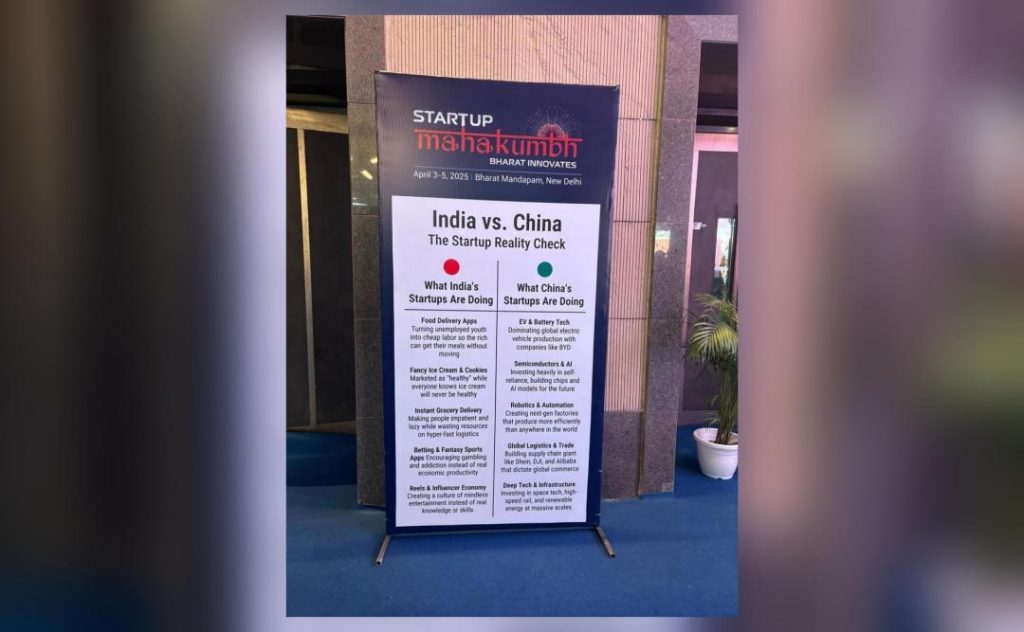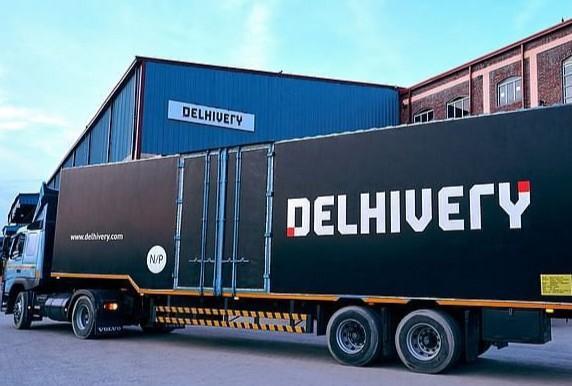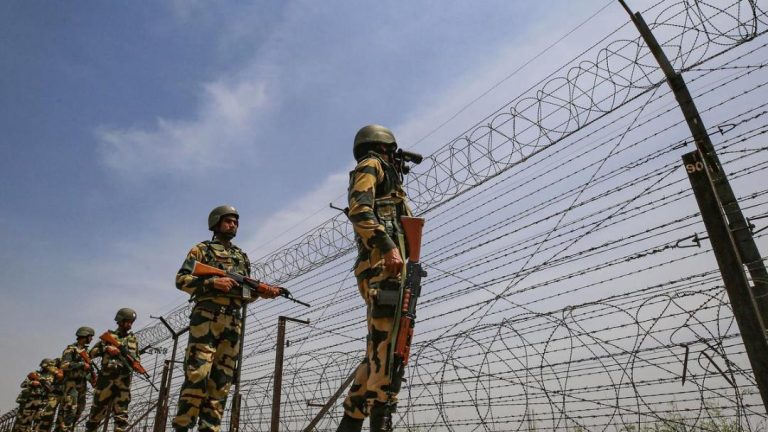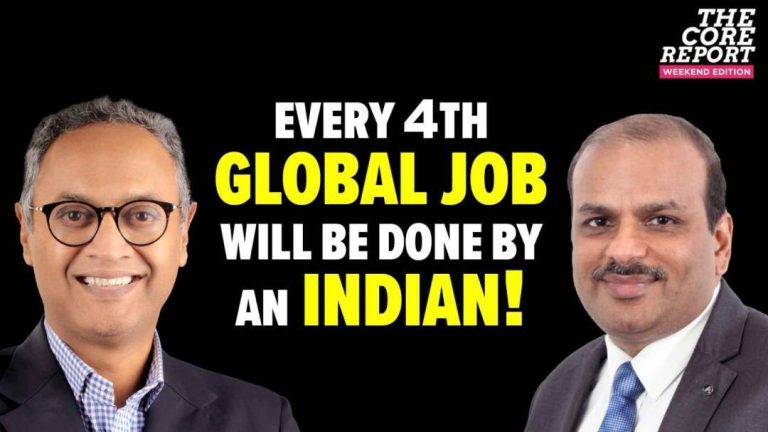
India vs China Startup Reality Check: A Board at Startup Mahakumbh Sparks Debate
The recent Startup Mahakumbh event in Delhi, India, has sparked a heated debate after a board titled “India vs China startup reality check” was displayed, comparing Indian startups with their Chinese counterparts. The board, which listed various statistics and data, has been criticized by many as “Chinese propaganda” against India, while others have defended it as a “reality check” for Indian startups.
The board, which was displayed at the Bharat Mandapam, a prominent event space in Delhi, listed various statistics, including the number of startup unicorns in each country, the average age of startup founders, and the number of startups that have received funding. According to the board, China has a significant edge over India in terms of startup ecosystem, with more unicorns, higher funding, and a younger average age of founders.
The display sparked a heated debate among attendees, with some criticizing the organizers for pushing “Chinese propaganda” against India. Mohandas Pai, the former CFO of Infosys, tweeted, “Why are organisers pushing Chinese propaganda against India? Indian startups need help, not this.” Other attendees also expressed similar sentiments, calling the display “unfair” and “biased”.
However, not everyone was critical of the board. Some attendees defended it as a “reality check” for Indian startups, pointing out that the data presented was factual and not necessarily a criticism of Indian startups. “This is a reality, not propaganda,” tweeted an X user. “Inefficiency should not surface as criticism,” added another attendee.
The controversy surrounding the board has brought attention to the startup ecosystems in both India and China. While India has been touted as the next big thing in the startup world, with many successful startups like Flipkart, Ola, and Paytm, China has a long history of innovation and entrepreneurship. China has produced many successful startups, including Alibaba, Tencent, and Didi Chuxing, and has a large and growing startup ecosystem.
One of the key reasons for the difference in startup ecosystems between the two countries is government support. China has a robust government-backed startup ecosystem, with many programs and initiatives to support startups, including funding, mentorship, and incubation. The Chinese government has also been actively involved in promoting entrepreneurship and innovation, with many government-backed initiatives to support startups.
In contrast, India’s startup ecosystem has historically been driven by private entrepreneurs and investors, with limited government support. While there are many successful startups in India, the ecosystem is still relatively small and fragmented compared to China. Many Indian startups struggle to access funding, talent, and other resources, which can make it difficult for them to scale and grow.
The controversy surrounding the board has also highlighted the need for more nuanced discussions about the startup ecosystems in both India and China. While it is true that China has a significant edge over India in terms of startup ecosystem, this does not mean that Indian startups are not innovative or successful. Many Indian startups have achieved great success, and the country has a large and growing startup ecosystem.
In conclusion, the board at Startup Mahakumbh has sparked a heated debate about the startup ecosystems in India and China. While some have criticized the board as “Chinese propaganda” against India, others have defended it as a “reality check” for Indian startups. Ultimately, the controversy highlights the need for more nuanced discussions about the startup ecosystems in both countries, and the need for more government support and resources to help Indian startups grow and succeed.






